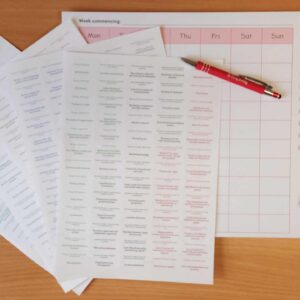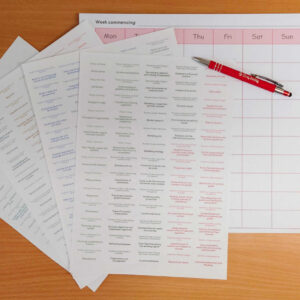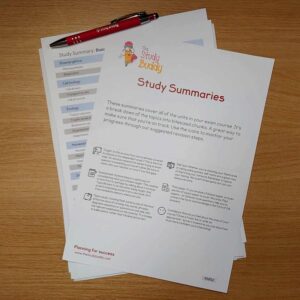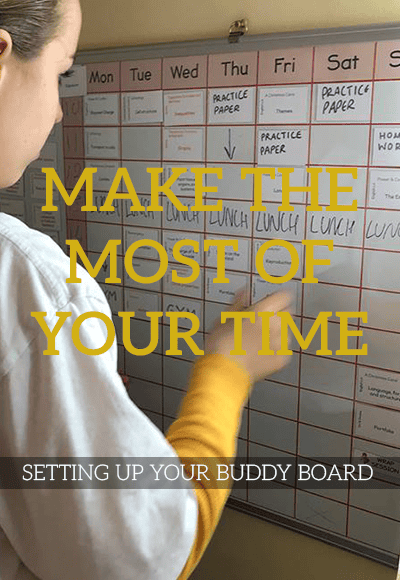
The Praise Paradox: How Much is Too Much?
The words we use at the dinner table carry weight. More than just encouraging action, they can have a lasting impact. But is there such

With GCSE and A Level exams in the UK cancelled due to the COVID-19 pandemic, students wait anxiously for some remote regulatory body to determine their grades. An understandably nervous wait for all.
Many students will have told themselves that they would wait for the Easter break to get started properly with their GCSE revision. Others might have been working diligently for many months. Either way, not being able to sit the exams and demonstrate what they think that they would have been capable of will have come as a serious blow.
Instead of sitting the exams this year, student’s mark will have been determined by teacher assessment and then a final standardisation process by Ofqual. The teacher assessment will be based on all kinds of data, in some cases reports of calling on SATS results have been reported. The teachers, of course, can only make an assessment based on the year group that they were exposed to.
This is why Ofqual are then going to standardise the results. Initial reports showed that if Ofqual had taken the predictions at face value, grades would have improved by 25%. That’s just not realistic. So, the standardisation from Ofqual is to ensure that the proportion of students getting grades falls roughly in line with expectations.
Of course, this is going to be an imperfect approach. Individual merit is now based on collective data and algorithm. That formula for determining whether a student gets the grades they were predicted is going to be based on a number of factors that may have nothing to do with your child. For example, the past performance of the school, will have a bearing on the results.
So, what can you do in the event that you didn’t receive the grades that you thought you should have?
The simple answer is not a lot. Ofqual have updated their guidance. There are steps for an appeal process, but it is very limited.
The school can appeal in cases where the data that they submitted was incorrect. This is only about whether the school intended to predict a 7, or A for example, but instead the data showed 6 or B. Here you would simply be saying that there was a failing in the process. It is not about whether the school were right to make the prediction. That is not grounds for appeal.
If you think that the exam board made an error in the way that predicted data was used then a school can appeal. The standardisation processes and formula are not up for debate, simply that it wasn’t applied to the school’s results properly.
Reasonable adjustments, on grounds of disability or special education need, should have been taken into account in determining the grade. If you don’t think that they were applied then you should talk to your school who could appeal.
Following recent outcry, Ofqual have confirmed that a school can now appeal their results if they don’t think that their improving status has been taken into account.
This is all to do with the use of the school data. It isn’t about the prediction itself. There are circumstances where you disagree with the grade probably because of either: “I could have done better.” Or “I disagree with the prediction from my school.”
Unfortunately, there is no recourse or appeal in these situations. How you would have done is entirely subjective and can’t be evidenced. And to successfully argue that the teachers got their predictions wrong would require someone more qualified to predict that the teachers. And that, argues Ofqual, isn’t possible.
In all cases the first step is to talk to your school or college. They are the only ones who can really appeal. The only circumstance you could appeal to an exam board is in the case that you think there has been discrimination or bias. Although your school should have a procedure for dealing with this kind of situation.
If you are still unhappy with the results the only option you have is to resit those exams. For AS and A Levels that will be in October. For GCSEs the resits will be in November.
Resitting for GCSEs isn’t ideal. The vast majority of students won’t have picked up a GCSE course book for many months. And the more conscientious students have started to think about their A-levels. Resitting then is probably reserved to those who failed core subjects or didn’t get the required grades for their next steps, more than students unhappy that they didn’t get as high a grade as they thought that they would. Afterall, they’ll already be working on their A level courses by the time the resits come around.
For A and AS Levels not getting the grades you thought you would could be a barrier to getting your University place. The first thing to do should be to talk to the admissions department at your first choice University In all likelihood admissions this year will be lo and so you might find yourself in a good position. And, of course, these institutions are well aware of the situation and you would hope would be more receptive to these exceptional circumstances.
There’s nothing about this situation that feels fair or just. But how do you deal with an unforeseen and unprecedented event like exam cancellation and still provide the foundation blocks for progression for students, their results. It is a harsh lesson; but this will not be the last time that things do not go according to plan. The important thing is to try to deal with the situation practically and dispassionately. Although that is often easier said than done.
For ideas on how to support your teen when things don’t go according to plan, take 20 minutes to listen to the Study Sessions podcast. In particular Episode 1: “Life is Wiggly” with Dr Dominique Thompson. As with all of the experts we talked to, Dom shares great practical tips and insights.






Our GCSE Special bundle is everything you need to get going quickly and easily.

The words we use at the dinner table carry weight. More than just encouraging action, they can have a lasting impact. But is there such

You can’t out-supplement a bad diet, but you can certainly optimize a good one. From the sleep-restoring power of Iron to the brain-boosting benefits of

If your teen’s revision plan didn’t quite survive half-term, you aren’t alone. But dwelling on a “failed” week is the fastest way to derail the
An offer code will be sent to you. By subscribing to our newsletter you agree to our Terms and Conditions and Privacy Policy. You can unsubscribe at any time.
Thank you for signing up! Check your inbox soon for special offers from us.
In the meantime, you can use the code Welcome5

